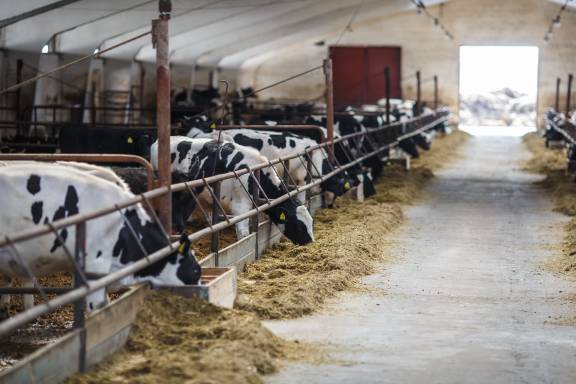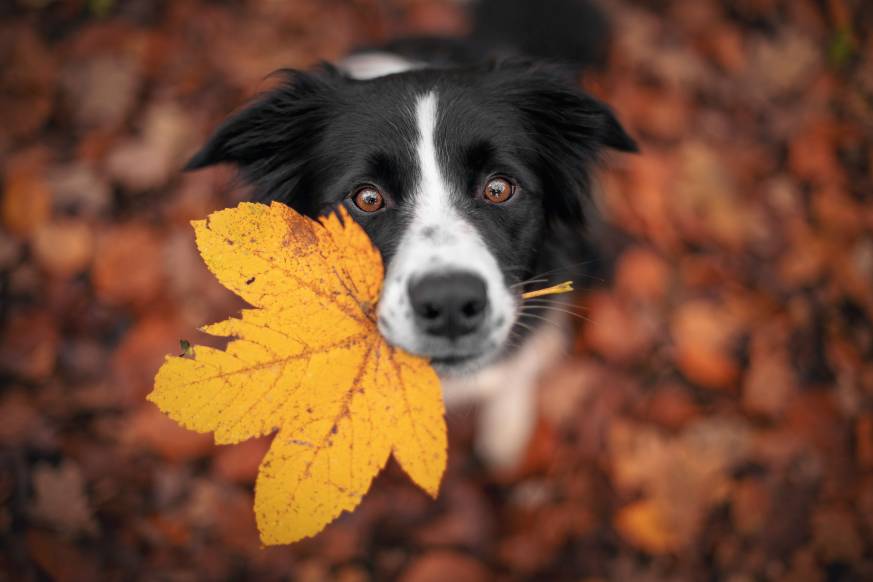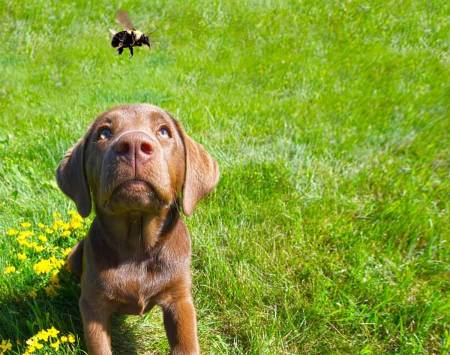Connect with a verified veterinarian in minutes. Licensed vets are available 24/7 to answer your questions. No need to worry about your furry family member.
When you live in a rural area, there are all kinds of things around that interest your dog. This may even include cow manure! A dog that’s attracted to cow manure may even eat it. But can cow manure make your dog sick?
Has your dog eaten cow manure? Are you worried the cow manure will make your dog sick? If so, you’ve come to the right place. We understand it can be scary when your dog eats something like this.
We’ve gathered information about cow manure and whether it can make a dog sick. Let’s get started!
What is Cow Manure?
Cow manure is a fancy term for cow poop, also known as cow pats, cow dung, and other names. Cow manure is poop produced after a cow eats and drinks. The dung contains undigested plant matter that’s been through the cow’s digestive tract. Cow manure can vary in color from green to black; however, it usually darkens the longer it’s exposed to the air.
Why Would a Dog Eat Cow Manure?
Living in a rural area, there may be plenty of opportunities for a dog to eat cow dung and the poop of other livestock. Dogs naturally eat almost everything, including poop. Eating poop is natural for dogs.
Some dogs may eat cow poop if they’re not getting enough food or the nutrients they need. Cow manure is rich in nutrients that may be beneficial for a dog. A dog may also eat cow poop if he has an underlying health issue, such as parasites or other medical conditions. But can eating cow manure make a dog sick?

Review symptoms, medications & behavior to keep your pets healthy with a Vet Online in just minutes.
Ask a Vet Live NowCow Manure & Dogs
One of the main concerns about a dog eating cow manure is that livestock is regularly treated with deworming products. Cows are given dewormers to prevent harmful parasitical infestations, primarily when cattle are raised for milk and meat. Farms are required by law to treat their cows for parasites.
Once the cows have been treated for parasites, the medication passes through their digestive system and out into their manure. And the amounts of the medication in the manure can be toxic to dogs.
One of the most common dewormers for cattle is Ivermectin. Ivermectin poisoning in dogs can be serious, though it is rare.
Even if a dog doesn’t become poisoned by cow poop, he could pick up bacteria or viruses that could cause digestive tract issues, such as vomiting, diarrhea, and more. d
Symptoms of Ivermectin Toxicity in Dogs
You may notice these symptoms if your dog has eaten cow manure containing ivermectin:
- Lethargy
- Depression
- Excessive drooling
- Vomiting
- Pupil dilation
- Loss of appetite
- Difficulty controlling voluntary movements
- Disorientation
- Tremors or seizures
- Inability to stand
- Blindness
- Slow heartbeat
- Respiratory issues
- Coma
If you notice any of these symptoms in your dog, call the vet immediately. This is an emergency.
Treatment of Cow Manure Ingestion in Dogs
Ivermectin toxicity is very serious, and there is no antidote for this. So, the vet will treat your dog’s symptoms and keep him as comfortable as possible.
The vet may induce vomiting or treat your dog with activated charcoal. They may also give your dog an IV for fluids and to administer medications. Some dogs may require supplemental oxygen or even be put on a ventilator if they’re experiencing respiratory distress.
The prognosis depends on the severity of the dog’s symptoms and his overall health. The prognosis is best for dogs that receive prompt medical treatment after eating cow manure. Recovery can take several weeks in some instances.
So, it’s best not to allow your dog to eat cow manure. In this case, prevention is the best medicine.
Connect with a verified veterinarian in minutes. Licensed vets are available 24/7 to answer your questions. No need to worry about your furry family member.

Kim
Kim is a talented author, who loves animals especially dogs. She engaged in writing books and articles relating to animals a decade ago. Kim resides in Chicago with her husband and son. The family is the proud owner of a dog and a parrot (Jack and Lily). Kim wanted more than these two pets, but her husband put his foot down... She often visits elementary schools to talk to the kids about what she learned about pets and how they could learn from them.
Review symptoms, medications & behavior to keep your pets healthy with a Vet Online in just minutes.
Ask a Vet Live Now





